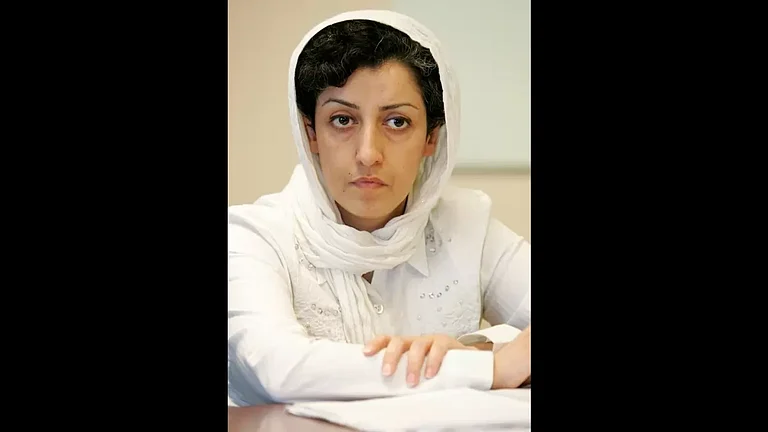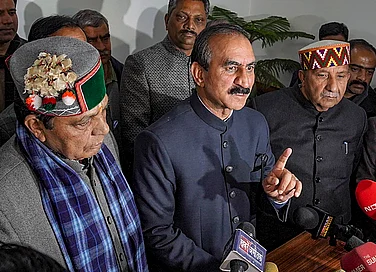Although the precise definition of autonomy remains to be articulated in Indian education policy circles, there is emerging consensus that our colleges and universities need a freer rein if students and teachers have to realize their academic potential to the fullest.
The prompt withdrawal of Rohinton Mistry's Such a Long Journey at the behest of the Bharatiya Vidyarthi Sena activists makes a complete mockery of academic freedom that is central to education reform. Our classrooms are increasingly run by multiple power centres, and most of these fiefdoms don’t understand the stakes in the disciplines they are lording over. Besides issues of pay and inadequate infrastructure, the best and brightest in our country don't enter teaching, or quit prematurely, because of this absurd micromanagement of intellectual labour and intellectual capital. The notice to colleges to withdraw Mistry's novel by the Vice-Chancellor of Mumbai University was a new low even by these sorry standards. Furthermore, in an interview to a leading news channel, the chief minister of Maharashtra virtually toed the line of the Bharatiya Vidyarthi Sena activists. According to Mr. Ashok Chavan, " the highly objectionable language" in sections of Mistry's novel made it an unwise choice in the SYBA syllabus of Mumbai University.
I am an alumnus of Mumbai University, and I am currently pursuing a PhD in English Literature at a major research university in Midwest America. As part of my teaching responsibilities, I have to conduct courses in academic writing for first-year and second-year students. I frequently use Gloria Naylor's essay, "Mommy, What Does ‘Nigger’ Mean?" in classes with students of ethnically diverse but predominantly Caucasian backgrounds. The essay is widely anthologised and easily available online, with the n-word consistently printed in its entirety. Naylor writes that her black family in Harlem used the n-word as a signifier of communal bonding and rejected its original intent to humiliate the African-American community. Naylor’s essay offers trenchant insight into how an act of communication can never be understood in isolation. It is determined by several variables that interact with each other including content, author, audience, context and purpose. This is a highly sophisticated argument, and very occasionally some of my Caucasian students refuse to look beyond the title of Naylor’s piece. They get the impression that Naylor is maligning ‘whites’, and possibly as an instructor of South-Asian origin I am taking them on a guilt trip. I give them the space to react viscerally, but I nudge them from their knee-jerk responses to a critical assessment of Naylor’s article. Naylor certainly doesn’t have the last word on this subject, and none of my students have to agree with her position. But before expressing their disagreement, particularly in written assignments, they are required to understand Naylor’s argument from the inside out. The larger pedagogical purpose here is to underscore that we cannot banish our ill-founded anxieties about ourselves or others; we need to confront them head-on.
Academic freedom is not a luxury of the American ivory tower alone. I refuse to accept the offensive argument that we Indians are so emotional that we are incapable of critical analysis. Between my master's and doctoral studies, I taught communication and literature to a delightful group of first-year media students at my other alma mater, St. Xavier's College, Mumbai. The time I spent there convinced me that our youngsters are miles ahead of self-styled custodians of propriety in their creative quotient and inquisitive spirit. This enormous potential will remain untapped though, if we refuse to let our students think for themselves and allow our teachers to work in peace. I can think of few things more detrimental to an India aspiring to greatness than this multi-pronged assault on her intellectual and cultural freedoms. The paranoid state and non-state actors who initiate these attacks, rather than our apparent emotional immaturity, prevent us from confronting our shared fears in a reasonable manner.
I understand that ideas like freedom, secular and sacred are inflected by local contexts. But surely we can all agree that it's an unequal contest if one side in the battle for the soul of India is armed with sticks and swords and the other has little more than pens and paintbrushes. Can’t we collectively—on the left, right and centre—evolve a more viable intellectual, legal and political framework that allows irreverent, but well-meaning Indians to be heard?
Suhaan Mehta is a PhD Student and Graduate Teaching Associate, English Department, The Ohio State University, USA





















